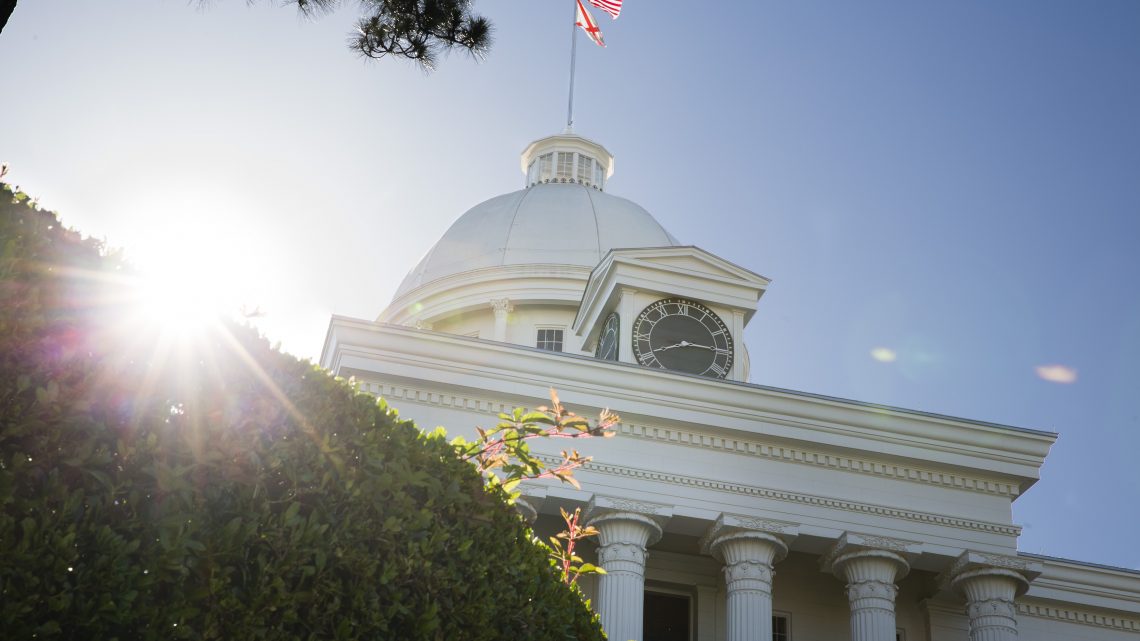
Reminder: Abortion Is Still Legal in Alabama
May 15, 2019Late Tuesday night, lawmakers in Alabama passed a near-total ban on abortion in the state, with no exceptions for instances of rape or incest, making it the strictest anti-abortion legislation in the nation. The bill, HB 314, which is awaiting the governor's signature, also makes providing an abortion a Class A felony, carrying with it a prison sentence of up to 99 years.
The legislation has several antecedents in recent six-week bans that have come out of Georgia, Ohio, Mississippi, and Kentucky, some of which include similar attempts to criminalize abortion providers and endow fetuses with the same legal rights as people. And like those pieces of legislation, Alabama’s pending abortion ban is likely to sow mass confusion and panic even though the laws aren't in effect. Abortion providers and clinic staff in Georgia and Ohio have said patients have been flooding their clinics with calls, asking if they can still come in for their appointments, and wondering if abortion is still legal in their state.
Some media coverage has added to the uncertainty, with prominent news outlets running headlines stating only that abortion has been banned, without including information about the steep legal battle the legislation will face, and the high likelihood that it will be struck down in the courts.
“The media is so intent on showing how extreme these laws are that they tend to just say ‘it’s signed into law’ or ‘it’s now illegal,’ when the reality is these bills don’t go into effect immediately,” Robin Marty, the author of A Handbook for a Post-Roe America, told VICE last week when Georgia’s six-week ban passed. “That means you have people who think there’s no legal abortion in Georgia.” And after Tuesday night, it could mean people who think there’s no legal abortion in Alabama, either.
Despite the extreme legislation making news in the past few weeks, abortion is still legal in every state in America—and many pro-choice advocates believe it’s likely to stay that way.
Here’s everything else you need to know about Alabama's abortion bill:
What does the bill say?
The bill would ban abortions at every stage of pregancy unless the mother's life is in danger—again, no exceptions for rape or incest—and it would make providing abortion a felony; people who have abortions would not be criminalized.
The text of HB 314 cites a 1975 state statute criminalizing abortion, which—though rendered unenforceable by Roe v. Wade—had never been repealed. It goes on to cite the results of November’s midterm elections in the state, which saw a majority of Alabama voters approve a constitutional amendment “declaring and affirming the public policy of the state to recognize and support the sanctity of unborn life and the rights of unborn children.”
Like Georgia’s six-week ban, the bill outlines a clear argument for fetal personhood, calling a fetus “a human being, specifically including an unborn child in utero at any stage of development, regardless of viability.”
Is abortion still legal in Alabama?
Yes. HB314 isn’t scheduled to go into effect until six months after it’s signed into law by the governor. Until then, abortion will remain legal in Alabama, within the parameters of state restrictions already in effect. These include requirements that patients seeking abortion care receive state-directed counseling, undergo an ultrasound, and wait 48 hours before doctors perform the procedure.)
Will the governor sign it?
Alabama Governor Kay Ivey has not said whether or not she’ll sign the bill into law, and a spokeswoman from her office told the New York Times Tuesday night that she’s withholding comment “until she has a chance to thoroughly review the final version of the bill that has passed.”
During her 2018 campaign for governor, however, Ivey criticized her opponent for his lack of support for Alabama’s proposed constitutional amendment, stating at the time: “It's unconscionable to me that Walt Maddox would join abortion rights activists from across the country in opposing this measure that simply recognizes the rights of our precious unborn babies.”
And she’s also spoken out against the U.S. 11th Circuit Court of Appeals’ decision to strike down 2016 legislation from Alabama that sought to ban a common second-trimester abortion procedure.
Given her track record, Republican lawmakers expect her to sign HB314 into law.
Ok, so if she signs it, then what happens?
Planned Parenthood, the American Civil Liberties Union of Alabama, and its national counterpart the ACLU, have promised a legal battle against the state. Tuesday night, the ACLU of Alabama wrote on Twitter that together the organizations would “file a lawsuit to stop this unconstitutional ban and protect every woman’s right to make her own choice about her healthcare, her body, and her future.”
That means if Ivey signs the bill, she’ll trigger a lengthy and costly legal battle in the federal courts. The battle would likely begin with an organization like Planned Parenthood or the American Civil Liberties Union filing a lawsuit, and requesting that a district judge block the legislation from taking effect until it’s settled in court. While the legislation makes its way through appeals courts, abortion will remain legal in the state. If it makes it there, the Supreme Court will have the last say in whether or not to take up the case.
As extreme abortion bans emerge from conservative states, pro-choice advocates and providers have emphasized that no six-week abortion ban has ever gone into effect—and neither has an outright abortion ban.
“People are saying, ‘I don’t know if I can make an appointment,’” Calla Hales, the director of two Georgia clinics, told VICE last week, of the effects of her state’s recent legislation. “We’re explaining to them, ‘No, abortion isn’t illegal. This ban doesn’t go into effect until 2020, and honestly, it may never get there.’"
So what’s the strategy behind passing an outright abortion ban?
Anti-choice lawmakers are hoping to appeal blatantly unconstitutional abortion bans all the way up to the Supreme Court, where they believe conservative justices will vote to overturn Roe v. Wade.
Though legislators passing six-week bans have the same goal in mind, the anti-abortion activist who drafted HB314 said six-week bans don’t challenge Roe enough—which is why the Alabama legislature rallied behind a total ban. Eric Johnston, the founder of the Alabama Pro-Life Coalition, views six-week bans as a “wasted opportunity,” according to the Times.
“Why not go all the way?” he said.
Still, it takes a while for any piece of legislation to reach the Supreme Court. After five years, a Louisiana abortion law passed in 2014 arrived before the Supreme Court bench in January—so there’s a long road ahead for anti-abortion activists.
What will the Supreme Court likely do?
It’s not entirely clear. Anti-choice lawmakers know they have enough Supreme Court justices on their side to overturn Roe v. Wade, but that doesn’t mean justices will take up their case. The court hasn’t agreed to hear an abortion case since Justices Neil Gorsuch and Brett Kavanaugh were confirmed, and there’s been much debate about how Chief Justice John Roberts would vote on a challenge to the landmark abortion rights decision.
Roberts is thought to be an incrementalist, pumping the breaks on plans to overturn Roe outright. But Gorsuch and Kavanaugh were both nominated by a president who pledged to only appoint justices to the bench who would overturn the ruling, which means the two justices could encourage the court to take up an abortion-related case.
Justices will have ample opportunity to do so: If Alabama’s abortion ban becomes law, it will join several others in the pipeline to the Supreme Court, including three different measures in an Indiana abortion law, which the court could agree to take up as soon as Monday.
The law, which requires abortion providers to have admitting privileges at local hospitals, flies directly in the face of the precedent established by Whole Woman’s Health v. Hellerstedt, the 2016 decision that ruled such a requirement imposed an undue burden on people seeking abortions. But two recent Supreme Court cases show justices feel comfortable ignoring decades of precedent, which means they could decide the same if made to rule on Roe.
What’s moving the needle on the pro-choice side?
While the legislation is litigated in court, supporters of abortion rights across the country are turning to on-the-ground organizations that keep abortion accessible. People have already flooded Yellowhammer Fund, an abortion fund in Alabama, with donations. The fund is a member of the larger National Network of Abortion Funds (NNAF), an organization that provides people with financial assistance to obtain an abortion, and helps them navigate the logistics in their particular state.
“Abortion Funds know that Roe v. Wade has never been a promise to actual access to an abortion, and have been navigating a landscape of reduced access and impending criminality for decades,” said Yamani Hernandez, the executive director of NNAF. “Abortion fund members haven't waited for the government to do its job to ensure people get to the care they need.”


